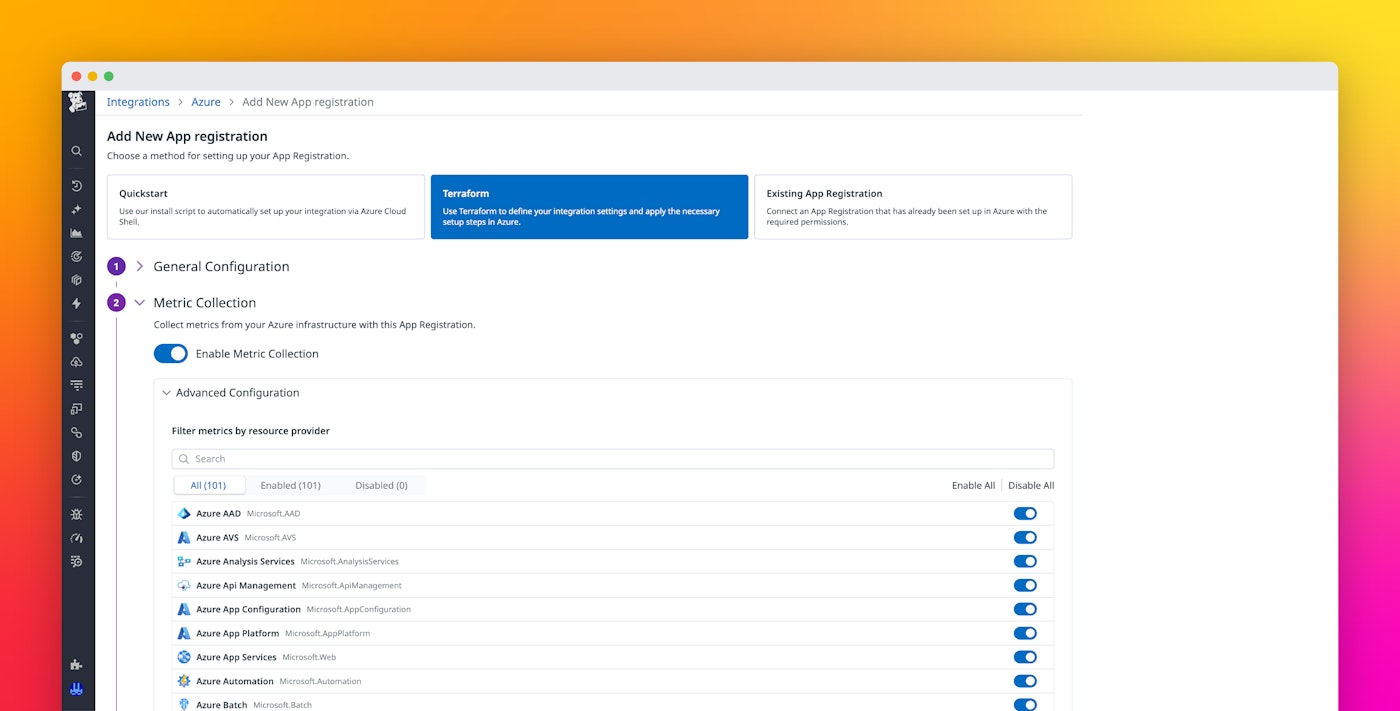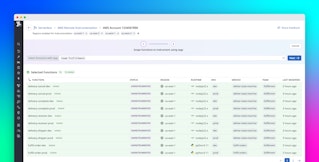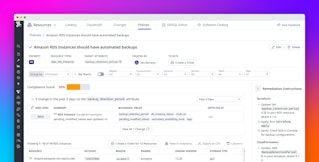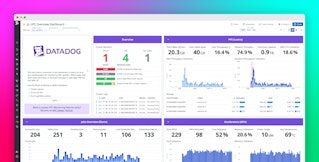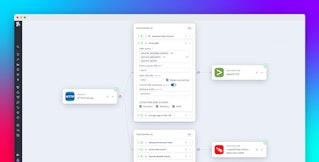
Michael Cronk
Getting started with monitoring for Microsoft Azure environments can be a lengthy and manual process. Many tools require users to create app registrations, assign permissions, and enable log forwarding or telemetry data collection across multiple portals and scripts. These fragmented steps slow down onboarding and introduce opportunities for misconfiguration, making it harder for teams to quickly achieve full visibility.
The new onboarding flow for Datadog’s integration with Azure resolves these challenges by providing an automated, end-to-end setup experience directly within the Datadog platform. This unified process helps you get your Azure environment configured correctly the first time so that you can start monitoring your resources in minutes.
In this post, we’ll explore how the new Azure onboarding flow gives you the opportunity to:
- Complete onboarding faster with less manual work
- Choose the setup method that best fits your workflow
Complete onboarding faster with less manual work
The new onboarding experience minimizes manual intervention while implementing full coverage of your Azure environment. Instead of jumping between the Azure portal, Terraform scripts, and the Datadog UI, you can now complete your setup through a single guided flow.
The process begins on the Datadog Azure Integrations page, where you’re prompted to connect your Azure account. From there, Datadog automates the essential steps of onboarding, including creating the app registration, assigning the correct permissions, and provisioning the resources required for monitoring. The flow also configures log forwarding to send platform logs directly from Azure to Datadog without additional steps.
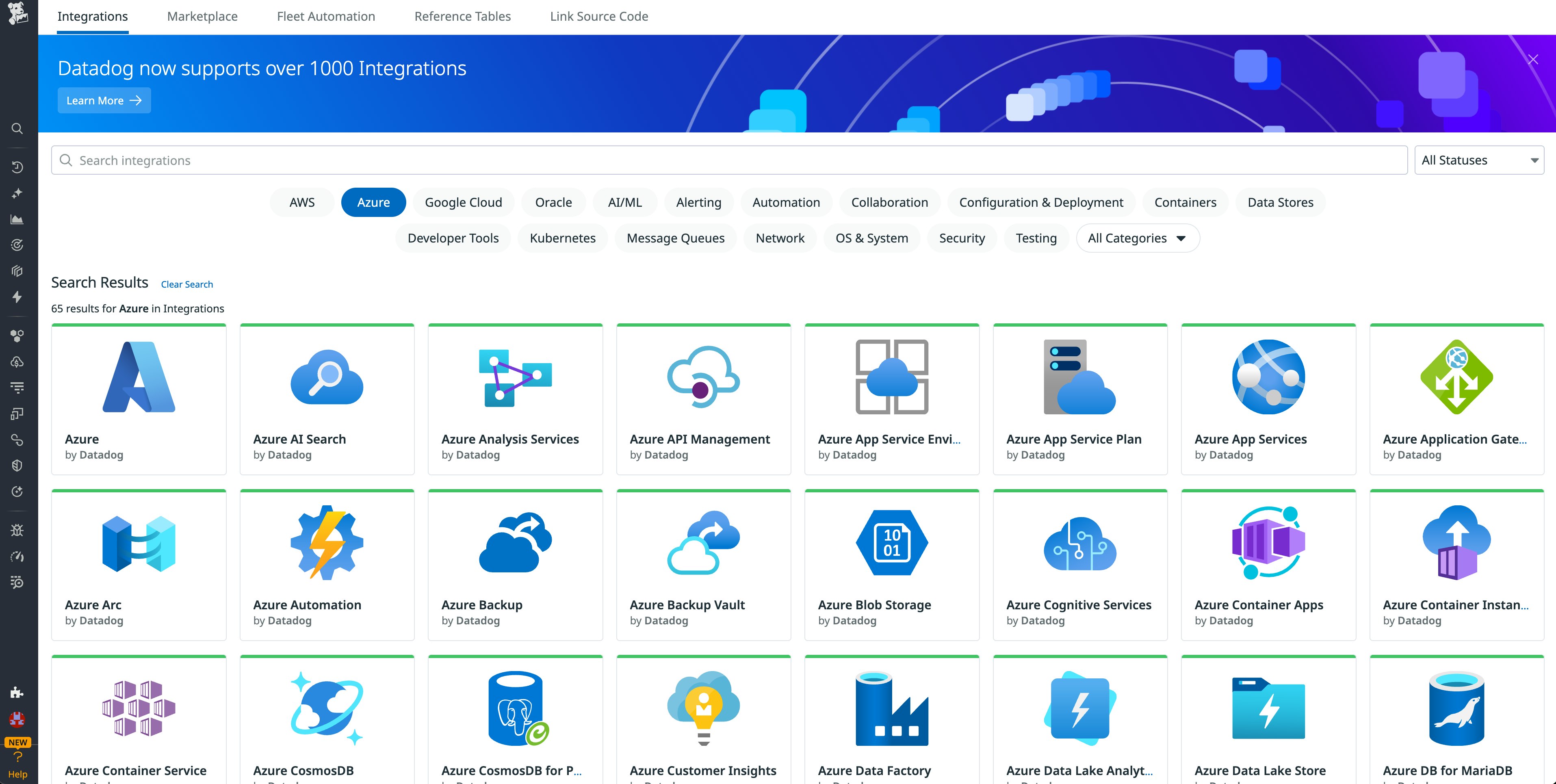
You retain full control over what’s included in your monitoring setup. During onboarding, you can specify which subscriptions, services, and resources to monitor. You can apply filters at the start so that Datadog collects only the metrics and logs that matter most to you. For example, you can select specific Azure resources or apply tag-based filtering to align data collection with your cost management and compliance policies.
With this new flow, a process that previously required manual steps and configuration edits can now be completed in just a few minutes. The increased automation reduces the likelihood of misconfigurations and helps your teams begin monitoring their Azure environments with Datadog faster.
Choose the setup method that best fits your workflow
Organizations have different requirements for managing cloud integrations, so Datadog provides three setup options to match your preferred workflow:
- Quickstart (Azure CLI): For the fastest path to integration, you can choose the CLI option and run a single command in Azure Cloud Shell. This command automatically configures the app registration, permissions, telemetry data collection, and log forwarding based on your selections in the onboarding flow. It’s ideal for teams that want to connect Datadog to their environment in minutes without managing templates or scripts.
- Terraform: For teams that use infrastructure as code (IaC), Datadog generates a Terraform template that reflects your chosen subscriptions, telemetry data types, and log forwarding settings. This template makes it simple to control versioning of your configuration and roll out consistent integrations across multiple environments. Because the Terraform script is pre-populated from your onboarding choices, you can copy the template and run it in your environment without further editing.
- Existing app registration: If your organization already maintains its own Azure app registrations for Datadog or other integrations, you can use this option to connect your existing configuration. This method gives you flexibility to manage credentials and permissions in compliance with your internal governance standards, and you still benefit from the rest of Datadog’s guided onboarding.
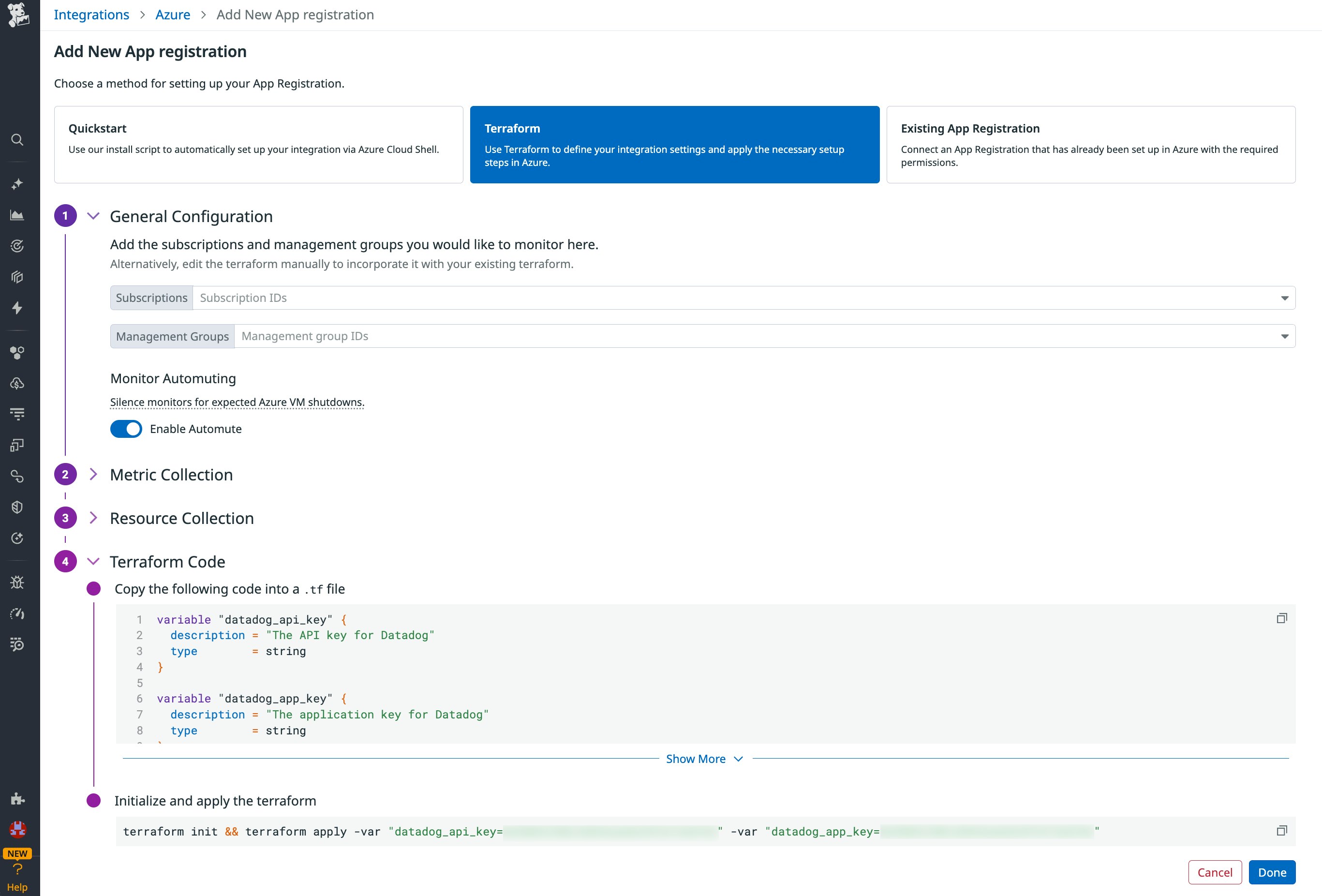
Start monitoring your Azure environment in minutes
With Datadog’s new guided onboarding flow for the Azure integration, your teams can connect to their Azure environments faster. Whether you deploy through the Azure CLI, Terraform, or an existing app registration, the process reduces the friction and potential errors that come with manual configuration. To learn more, check out our documentation for getting started with Azure.
If you’re new to Datadog, you can sign up for a 14-day free trial to get started.
